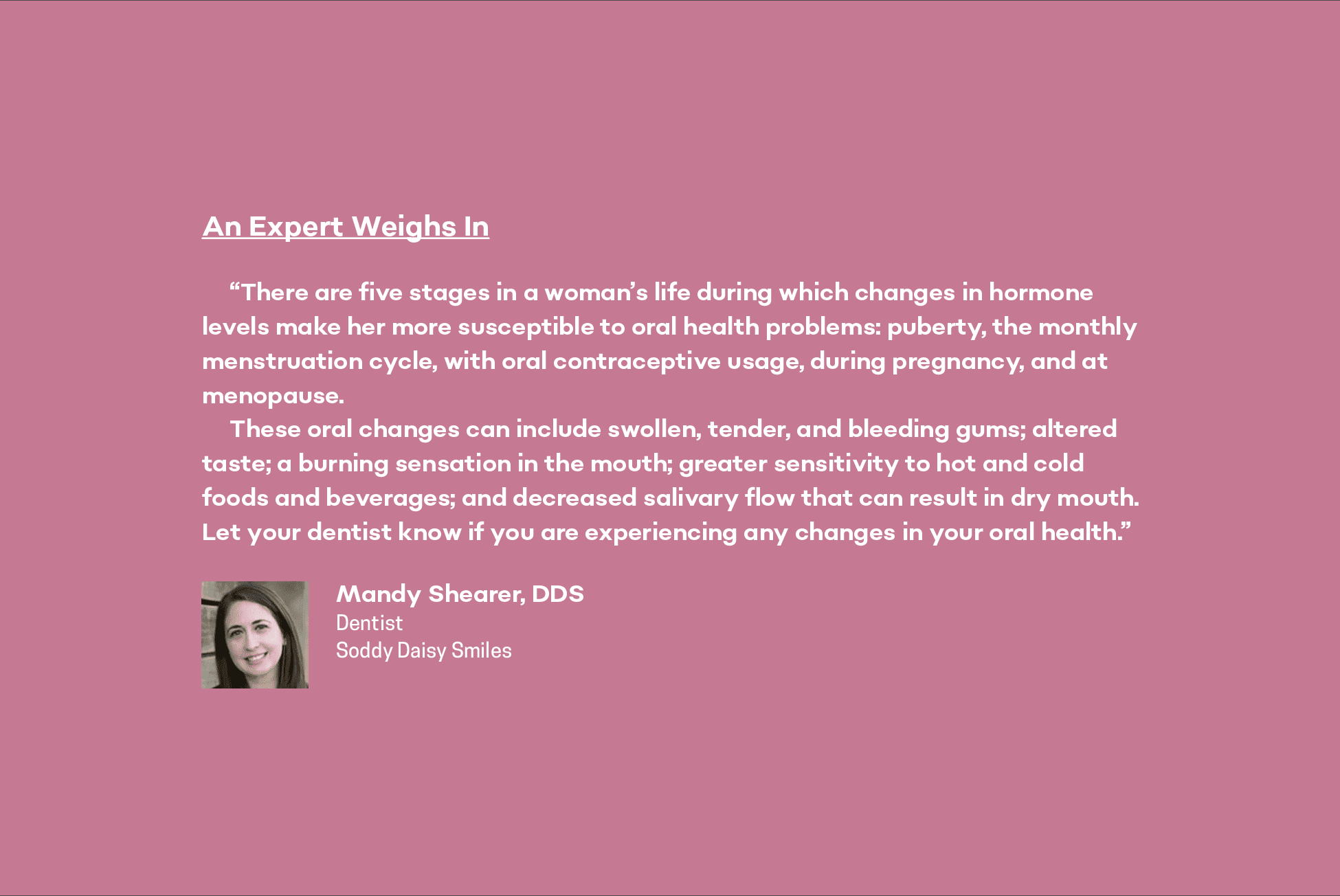Annual Women’s Health Section
Although women tend to take good care of their oral health, their fluctuating hormones make them susceptible to gum disease.
By Lucy Morris
Periodontal disease, more commonly known as gum disease, can range from simple inflammation of the gums, called gingivitis, to periodontitis, a serious gum infection that damages soft tissue and dental bone.
Women are more susceptible to gum disease than men due to fluctuations in their hormones. The hormones progesterone and estrogen, which regulate the menstrual cycle, can increase blood flow to the gums and can make them more sensitive to irritants like food and plaque. During times of hormonal change – such as during puberty, menstruation, and pregnancy; while on birth control; or after menopause – it becomes easier for bacteria to grow beneath the gums and around the teeth.
Puberty/Teenage Years
As girls reach puberty, they experience a surge in both estrogen and progesterone, which can increase their risk of gum disease. If they are undergoing orthodontic treatment, the condition can be even more difficult to manage.
Your Period
Many women experience oral changes during their monthly cycle due to the increase in progesterone. Called menstruation gingivitis, it usually occurs a day or two before the start of your period and clears up shortly after your period has started.
Birth Control
Oral contraceptives, or birth control pills, that contain progesterone can cause a woman’s gum tissue to become inflamed, particularly in the first few months after she has started them. The fluctuating hormones cause an exaggerated reaction to the toxins produced by plaque.
Pregnancy
Since hormone levels rise considerably during pregnancy, pregnant women have a higher risk of gum disease. Gingivitis is especially common from the second to eighth month of pregnancy, when a woman has increased levels of progesterone in her system.
Menopause
Following menopause, women can become more susceptible to periodontitis, the more destructive form of gum disease. This may be due to age-related changes in the mouth, hormonal changes due to menopause, and/or medications taken to combat diseases.
The best way to prevent gum disease is by practicing positive periodontal habits. Brush your teeth twice a day with a toothpaste that contains fluoride, floss at least once a day, and visit your dentist twice a year for a professional cleaning and exam. Your dentist can address any specific concerns and may recommend additional tips. HS


